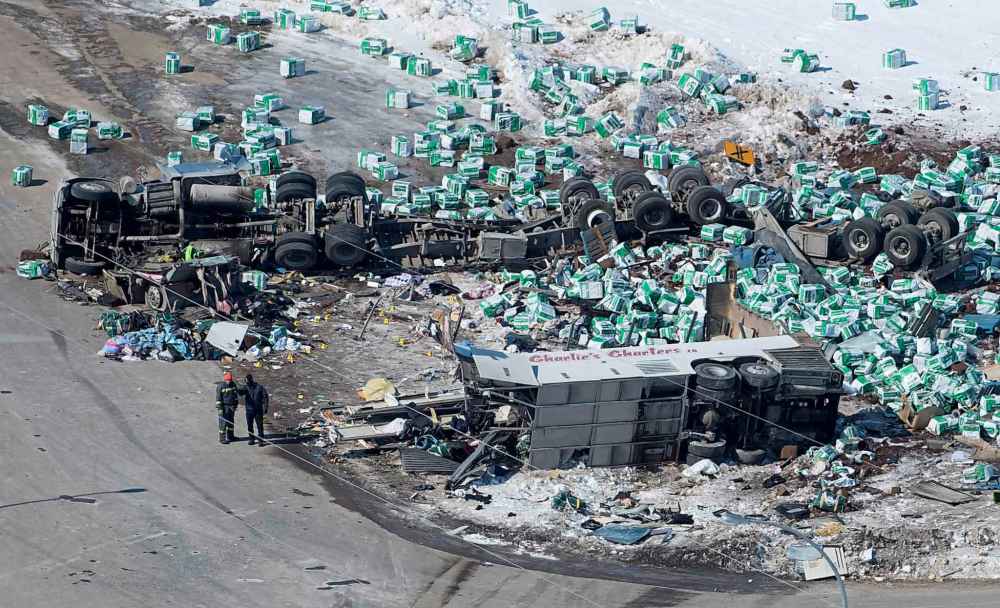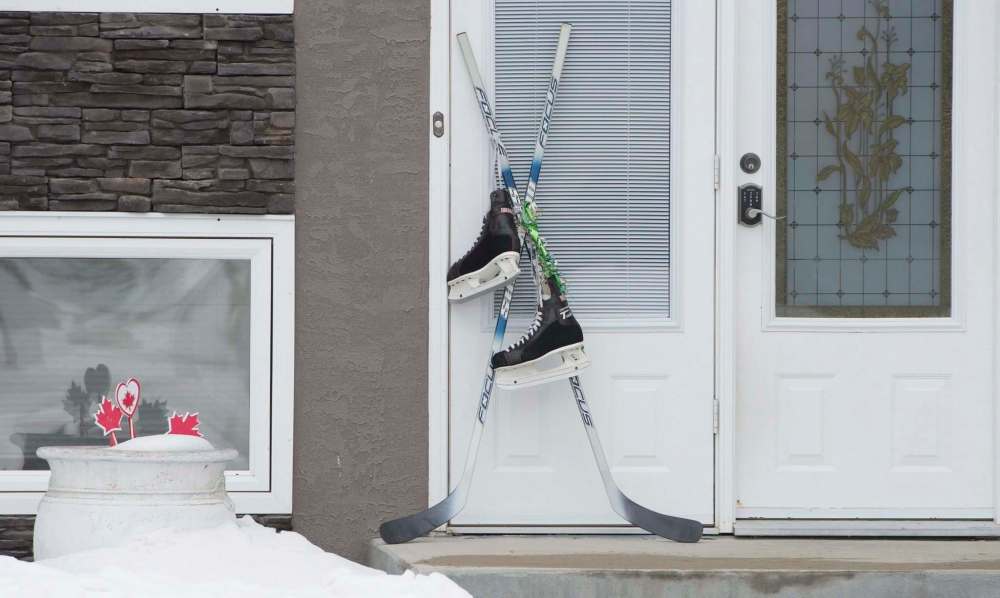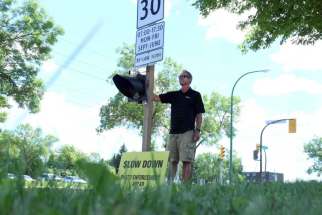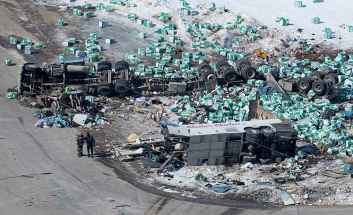Improved safety laws part of Broncos legacy
Read this article for free:
or
Already have an account? Log in here »
To continue reading, please subscribe:
Monthly Digital Subscription
$0 for the first 4 weeks*
- Enjoy unlimited reading on winnipegfreepress.com
- Read the E-Edition, our digital replica newspaper
- Access News Break, our award-winning app
- Play interactive puzzles
*No charge for 4 weeks then price increases to the regular rate of $19.00 plus GST every four weeks. Offer available to new and qualified returning subscribers only. Cancel any time.
Monthly Digital Subscription
$4.75/week*
- Enjoy unlimited reading on winnipegfreepress.com
- Read the E-Edition, our digital replica newspaper
- Access News Break, our award-winning app
- Play interactive puzzles
*Billed as $19 plus GST every four weeks. Cancel any time.
To continue reading, please subscribe:
Add Free Press access to your Brandon Sun subscription for only an additional
$1 for the first 4 weeks*
*Your next subscription payment will increase by $1.00 and you will be charged $16.99 plus GST for four weeks. After four weeks, your payment will increase to $23.99 plus GST every four weeks.
Read unlimited articles for free today:
or
Already have an account? Log in here »
Hey there, time traveller!
This article was published 23/10/2019 (2240 days ago), so information in it may no longer be current.
Manitoba’s new rules for recruiting truck drivers from overseas will be welcomed by the many people who were deeply moved by a 2018 crash involving the Humboldt Broncos junior hockey team.
The tragedy that killed 16 people and injured 13 others prompted a groundswell of reaction that, initially, was highly emotional. There were many tributes and vigils, including people across the country leaving hockey sticks outside their doors. A crowdfunding campaign set a Canadian record, with pledges of more than $15 million.
But the grieving eventually gave way to the more pragmatic issue of safety standards for truckers, particularly after the public learned the background of the driver of the semi-trailer that collided with the Broncos bus. A recent immigrant to Canada, he had obtained his commercial trucking licence after just one week of training, and had accumulated only three weeks of road experience before he drove his semi through a stop sign without braking.

The Broncos catastrophe and the resulting public attention to trucking regulations caused many administrations throughout the country, including Manitoba’s provincial government, to examine the relevant regulations and find them wanting in two important areas: training and recruiting.
The serious flaws in the current system were chronicled in a recent series of stories by the Globe and Mail that showed how some trucking companies in British Columbia have taken illegal cash payments from international students and let these newcomers, without adequate training, drive trucks on highways across the country.
In one case the newspaper highlighted, a 23-year-old new truck driver went through a red light at full speed two years ago on a Manitoba highway, causing a collision that killed 19-year-old Carley Hunking and her 17-year-old boyfriend, Dorian Roulette.
On Oct. 17, Manitoba’s provincial government issued new guidelines on the recruitment of international long-haul drivers under the provincial nominee program. Driver recruits must be between the ages of 21 and 50, have completed high school and must have at least three years of documented work experience as long-haul drivers. They must also come from countries whose regulation of truck drivers is comparable to North American standards.
Recruitment of truckers must be consistent with Manitoba’s Worker Recruitment and Protection Act, and the employer must satisfy the provincial nominee program’s requirement that truck drivers have not paid for any part of the recruitment process, including the job offer itself.
The changes supplement stricter regulations for commercial truck drivers that were introduced in Manitoba last March and took effect on Sept. 1. They require all Manitoba-based truckers to undergo 121 hours of mandatory entry-level training before legally obtaining a Class 1 licence to operate a semi-trailer truck.

While the changes to the Manitoba system are well warranted, other aspects of the problem are outside of Manitoba’s ability to control. The allegations by the Globe of improper recruiting of truckers included problems within the federal Temporary Foreign Worker Program, through which trucking companies hired newcomers even when the carriers had a proven history of multiple-injury accidents, serious safety violations or exploitative labour practices.
The federal department responsible for the program pledged on Oct. 6 to investigate “all allegations of abuse.” All Canadians will want this investigation to be thorough, with findings reported publicly.
The Humboldt tragedy remains seared into the Canadian consciousness. It will help the healing to know governments have sealed the holes in the system and that, going forward, trucks on Canadian highways will be under the control of drivers who are fairly recruited and adequately trained. Canada owes that positive legacy to victims of the Broncos crash.









